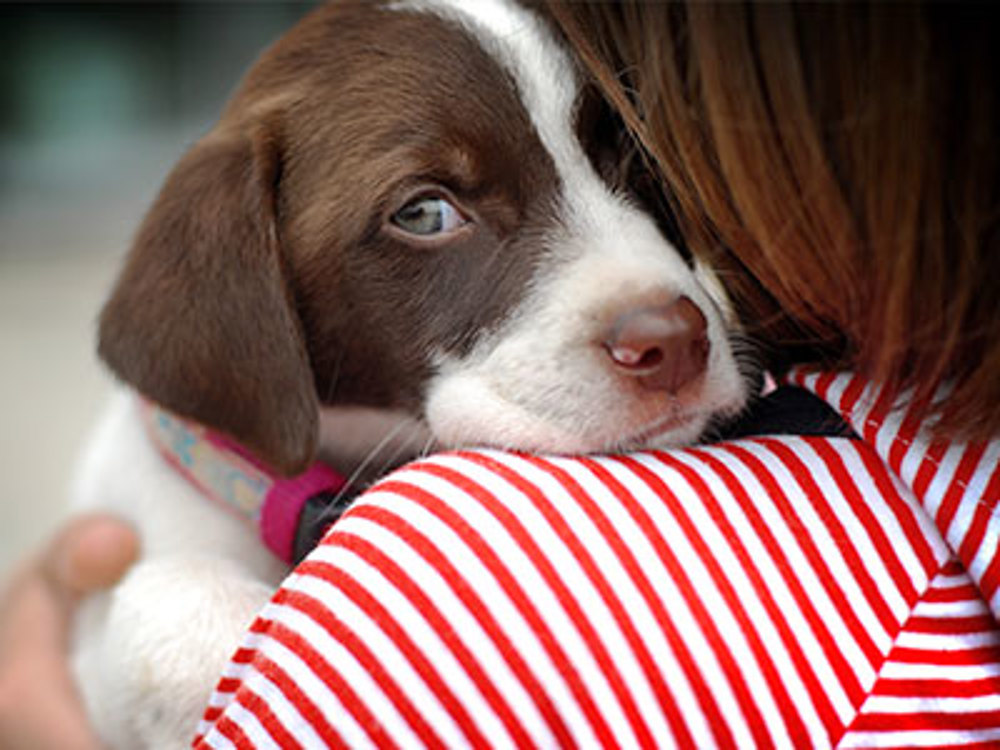
What is parvo?
Canine parvovirus is a highly contagious and very serious disease that is often deadly if left untreated. The virus attacks the intestines and immune systems of affected puppies and dogs, making them weak and unable to absorb essential nutrients from food.
What are the signs of parvo?
Signs of parvovirus usually begin five to seven days after infection, but can range from two to 14 days.
Initially, signs include:
- A high temperature
- Having less energy
- Being off their food
From 24-48 hours there may be:
Dogs with parvo become dehydrated very quickly and it is vital that you contact your vet for advice immediately.
I think my dog has parvo – what should I do?
- Contact your vet for advice straight away. Time is of the essence, so the sooner your dog receives treatment, the greater the chance of recovery
- Keep your dog away from other dogs while you’re on the way to the veterinary practice to prevent the spread of the virus
- If you have more than one dog in your house, then talk to your vet about what you need to do
- If your vet does confirm that your dog has parvovirus, ask them for advice on how best to decontaminate your home and garden
My dog has come into contact with a dog with parvo – what should I do?
Vaccination is a vital part of ensuring that your dog does not become infected with parvo. In some very rare cases, vaccinated dogs do not develop an immunity, so it is good practice to be aware of the signs of parvo, even if your dog is up to date on their vaccinations. Contact your vet immediately if you are concerned.
How can my dog get parvo?
Dogs can become infected with parvo through direct contact with an infected dog, its poo or vomit, or something that has itself been in contact with an infected dog, its poo or vomit. Parvovirus is incredibly hardy and can survive for months on most things. It is resistant to varying degrees of heat, cold and humidity. The virus can easily contaminate surfaces, food and water bowls, bedding, carpets, grass, kennels, cages, shoes, clothing and human skin. Any surface that has been contaminated may spread the virus to another dog.
Preventing parvo – is vaccination important?
Vaccination is the most effective way to protect your dog from parvovirus. Your dog should have had a vaccine when they were a puppy, but they will require regular additional boosters. Their annual vaccination will include an element designed to ensure that they are protected from the parvovirus. It’s important that your dog maintains its immunity, so if they are not up-to-date with their vaccinations, contact your vet as soon as possible.
Preventing parvo – further steps
While taking your dog for a walk, try to avoid letting them come into contact with poo from other dogs. Parvovirus is able to survive outside for a considerable amount of time and dogs can become infected by sniffing other dog’s poo.
Which dogs are most at risk of parvo?
Young puppies who have not yet achieved full immunity, dogs that have not had a vaccination and dogs that are not up to date with their vaccinations are most at risk of being infected.
Special puppy considerations
Until your puppy is fully vaccinated, you should prevent them from being exposed to dogs that could be infected or areas that infected dogs could have had access to. Puppies are most receptive to new environments and situations at this age, so keeping them confined to your house and garden may be counterproductive. During these important first weeks at home, you could take your puppy out to different places in your arms or the car to get them used to different situations and noises, as well as letting them meet new people.
Think your dog may be affected?
If you're worried about your dog's health, always contact your vet immediately!
We are not a veterinary organisation and so we can't give veterinary advice, but if you're worried about any of the issues raised in this article, please contact your local vet practice for further information.
Find a vet near you
If you're looking for a vet practice near you, why not visit the Royal College of Veterinary Surgeons' Find a vet page.
